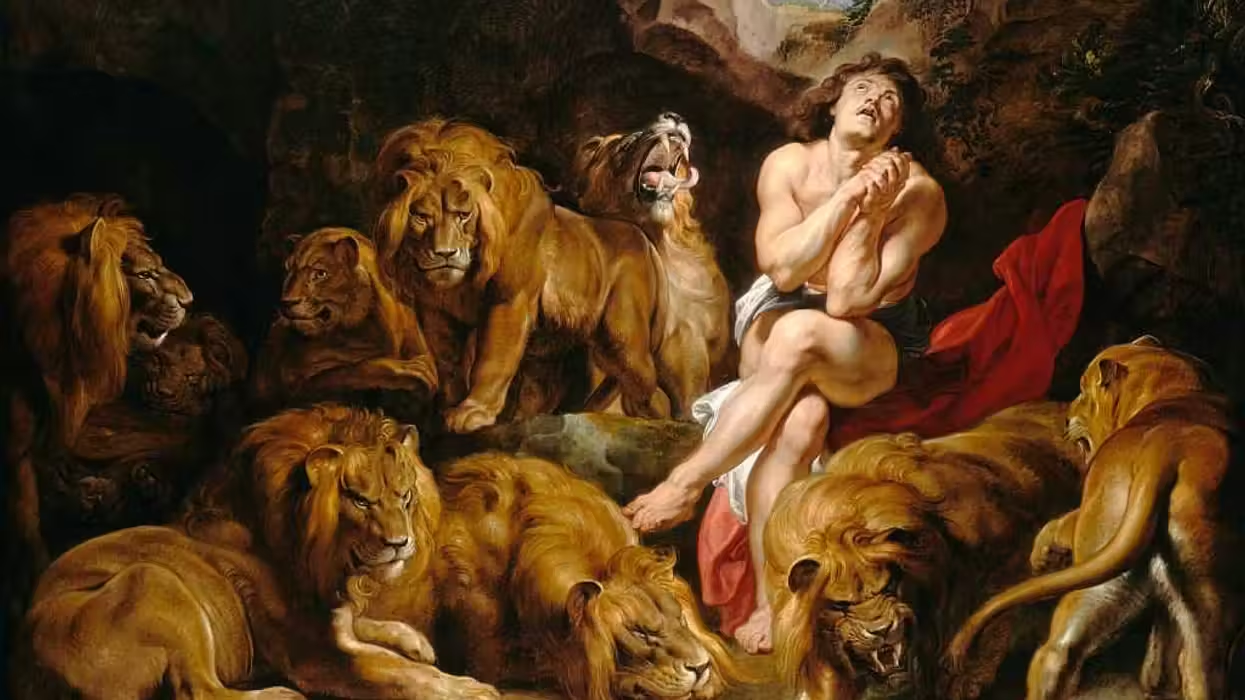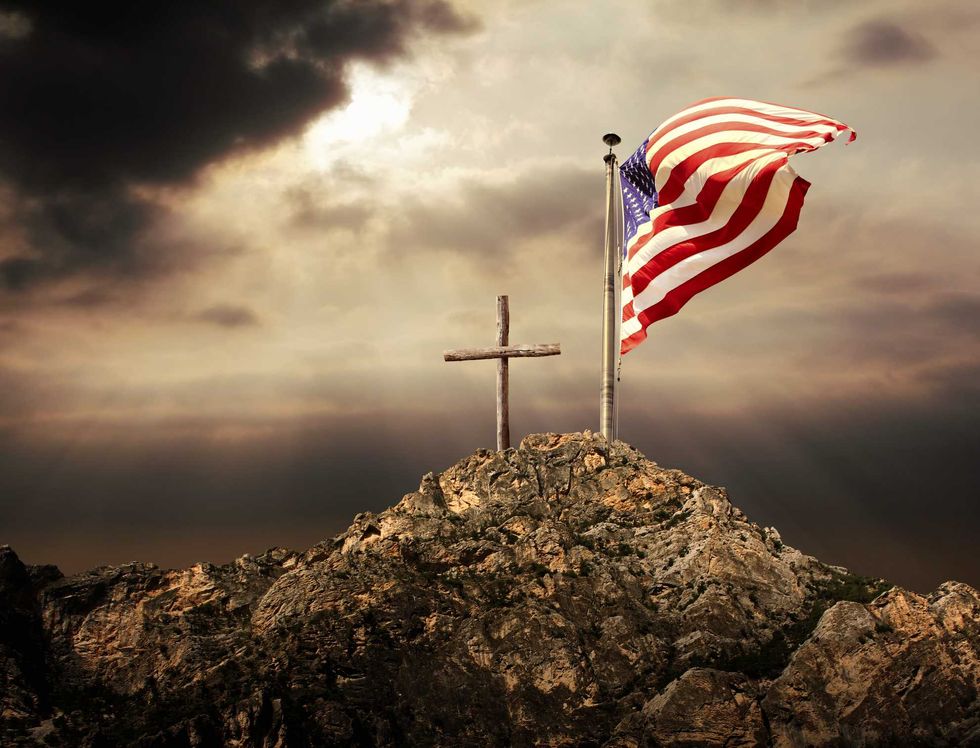
GraphicaArtis/Getty Images

A revolution is under way. But it's not happening in Washington.
Only in the upside-down world of elite evangelicalism could repentance look like rebellion.
David French recently made a telling admission: He is "nervous" about "something" that is "stirring in Christian America." That "something," French insists, is that contrary to news that a Christian revival is under way in America, what is actually happening is not revival but "religious revolution."
Revival always looks like revolution to those who've made peace with decay.
The evidence? Jan. 6 (of course), a nuanced Christian debate about empathy, and Charlie Kirk's memorial service.
Authentic revival, according to French, would be focused on the self because true revival "begins with the people proclaiming, by word and deed, 'I have sinned.'"
But so-called MAGA Christianity, he claims, announces a different message: "It looks at American culture and declares, 'You have sinned.'" French continues:
And it doesn't stop there. It also says, "We will defeat you." In its most extreme forms, it also says, "We will rule over you." That's not revival; it's revolution, a religious revolution that seeks to overthrow one political order and replace it with another — one that has echoes of the religious kingdoms of ages past.
And don't be fooled when these revolutionaries call themselves "conservative." All too many conservative Christians are actually quite proudly radical. They want to demolish the existing order, including America's commitment to pluralism and individual liberty, and put their version of Christianity at the center of American political life.
It's clear that French sees the stirring of Christian faith across America — Christians re-engaging in politics, education, and culture — but instead of feeling encouraged or hopeful, he sees it as dangerous. He wants you to believe that ordinary Christians working to build communities shaped by biblical values are flirting with authoritarianism.
But what he can't seem to imagine is that maybe this is what authentic renewal looks like: Christians waking up to the world around them, tired of pretending their convictions don't belong in public life.
Revival, after all, always looks like revolution to those who've made peace with decay.
French's nervousness reveals something deeper than politics. It exposes a theology that's been domesticated, one that treats faith as a private matter rather than a public demonstration of allegiance to Jesus Christ.
In his view, repentance is safe only when it stays inside the confines of the individual heart. But Christian faith is not individualistic. Repentance — literally meaning "turning back" or "returning" to God — is not limited to what one person can do for themselves. The Bible does not recognize the division that French asserts.
Instead, when people repent and turn back to God, hearts are transformed and households are changed. And when households change, communities change. And when communities change, culture is transformed.
RELATED: The left's new anti-Christian smear backfires

Every true revival — from King Josiah's reforms (2 Kings 22-23; 2 Chronicles 34-35) to the Great Awakenings — has looked political to those invested in the old order. That's because repentance, by its nature of not being limited to the self, always has public consequences. You can't toss aside sin and put on the "new self," as the apostle Paul calls it, without eventually dethroning the idols of the city.
The gospel doesn't just save people. It literally institutes a new Kingdom, one in which all reality is reordered around the lordship of King Jesus.
So when French frets about Christians who are "quite proudly radical," he misses the point. He sees a problem with Christians who want to tear down the "existing order" — as if that order has borne good fruit — and assumes they're driven by a lust for power and control. That critique is worse than lazy. It's slanderous.
In truth, these Christians aren't seeking power and control. They're simply refusing to bow to the false gods of our age.
The "existing order" that French defends isn't morally neutral, working for the flourishing of all people. No. It's an anti-God order that calls confusion "compassion," celebrates sin, and treats moral clarity as a threat to democracy. It's an order where drag queens read to children, abortion is called "health care," and Christians are pushed to the margins of polite society.
Yet to French, the problem isn't the godlessness but the Christians who dare call it out, stand against it, and seek to reform it. This brand of "respectable" faith demands silence in the face of cultural collapse. It's the faith that turns a blind eye to societal sin over fear that conviction may be mistaken for cruelty or — gasp — power-grabbing.
But a Christianity that never offends the world will never change it. Jesus didn't die to make the world more comfortable. He died to make you and me new people, and new people — those whose allegiance to Jesus bears conformity to his Kingdom — inevitably shape the world around them.
Call it "Christian nationalism," call it whatever you want, but the truth is this: The existence of the Kingdom of Heaven, which Jesus inaugurated, means that Christians right now are living out obedience to Christ. Christ is reigning, and that means His people, wherever they live, make their communities and countries more Christian.
And a more Christian world requires confronting the idols of our time and tearing them down, not politely negotiating with them.
Perhaps French is right: A revolution is under way. But it's not happening in Washington. It's unfolding quietly in small-town homes and churches across America, where Christians are repenting, rebuilding, and reordering their lives around the Kingdom of God.
We're now back to where we began: Only in the upside-down world of elite evangelicalism could repentance look like rebellion.
But maybe that's exactly what real repentance is supposed to look like in a culture that is so drunk on self-worship that it has not only rejected God or tried to erase Him, but it has tried to become like God.
French sees danger where there's actually deliverance: A generation of Christians waking up, tired of compromise, refusing to bow to Nebuchadnezzar's statue. He mistakes courage for cruelty and conviction for control. But the truth is simple: You can't have revival without resistance, and every age that bows to godless idols sees repentance as subversion.
If repentance and revival is returning to God, then revolution is what happens when enough people finally do.